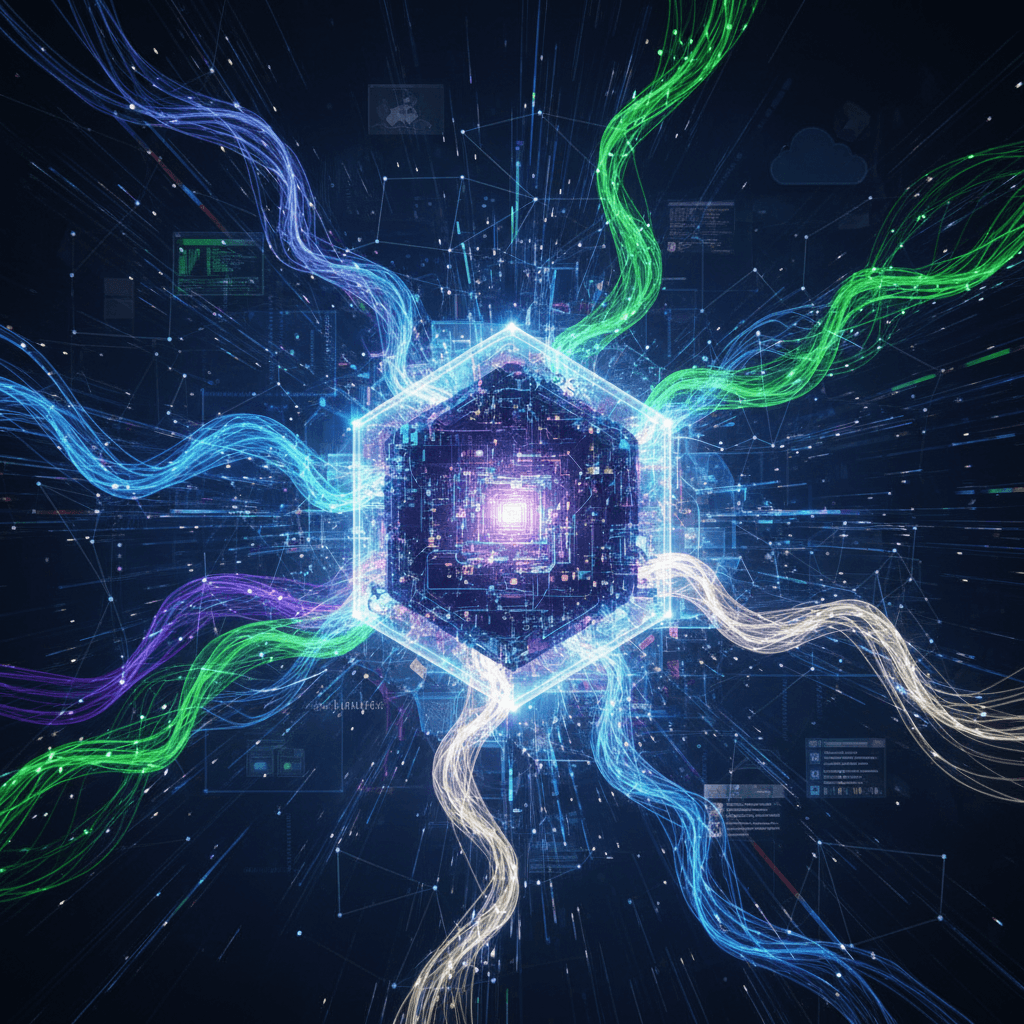Google Confirms Gemini 3.0: AI Takes Monumental Leap, Challenges Rivals
Google's Gemini 3.0 promises an unprecedented leap in multimodal AI, massive context, and agentic capabilities to redefine user interaction.
October 18, 2025

In a move that signals an acceleration in the artificial intelligence arms race, Google and Alphabet CEO Sundar Pichai has confirmed that the company's next-generation AI model, Gemini 3.0, is on track for release later this year. The confirmation came during a conversation at the Dreamforce 2025 conference, where Pichai described the progress on the new model as "extraordinary".[1][2] This announcement has intensified speculation within the tech community about the potential capabilities of Gemini 3.0, positioning it as a direct and formidable challenger to offerings from competitors like OpenAI and Anthropic. While Google remains tight-lipped about the specific technical details, a combination of industry analysis, developer previews, and code leaks points towards a significant leap in multimodal understanding, reasoning, and integration into the broader Google ecosystem.
Anticipation for Gemini 3.0 is largely fueled by a series of leaks and expert analyses suggesting a model with vastly expanded capabilities.[3][4] A central expectation is a monumental increase in the model's context window, with projections suggesting it could handle "multi-million" token inputs.[3] Such a capacity would revolutionize tasks involving the analysis of extensive documents, such as legal briefs or scientific research, by allowing the AI to maintain coherence and recall information across vast amounts of text.[3] Furthermore, Gemini 3.0 is expected to feature a much more sophisticated multimodal architecture, building upon the foundations of the Gemini 2.x series.[3][5] Rumors point to the ability to process real-time video at high frame rates, comprehend 3D objects, and integrate geospatial data, opening up new applications in fields from robotics to augmented reality navigation.[6][5] Underpinning these advancements is a rumored new reasoning architecture internally referred to as "Deep Think," designed to tackle complex, multi-step problems with greater reliability than its predecessors.[3][6] For developers and coders, leaks suggest Gemini 3.0 will bring stronger coding abilities and more seamless integration with external tools and APIs, potentially acting as a powerful productivity multiplier.[4][7] Some premium users of Gemini Advanced have already reported receiving notifications that they have been upgraded to a "3.0 Pro" model, suggesting a quiet, early-stage rollout is underway to test performance before a formal launch.[8]
The development of Gemini 3.0 is a cornerstone of Google's overarching strategy for 2025, a year Pichai has described as critical for the company.[9] This strategy involves a fundamental shift towards making AI models like Gemini the primary interface between users and Google's services, moving beyond the traditional search box.[10] The goal is to create a more intuitive, agentic AI that can understand complex user needs and execute multi-step tasks across different applications.[10][11] This vision is already taking shape with initiatives like Project Mariner, an AI agent capable of navigating the web to perform tasks.[10][11] Gemini 3.0 is expected to be deeply woven into the fabric of Google's product ecosystem, powering everything from AI Overviews in Search to advanced features in Workspace, Gmail, and the Android operating system.[6][5] The groundwork for this deep integration was laid by the incremental updates seen with Gemini 2.5, which brought enhanced multimodal capabilities and agent-like functions to a wider range of Google products following the I/O 2025 conference.[12][13] By controlling the full stack, from its custom Tensor Processing Unit (TPU) chips to the end-user applications, Google is positioned to create a seamless and powerful AI experience.[11]
The push for Gemini 3.0's release is happening within an intensely competitive environment. The generative AI landscape is currently dominated by a fierce rivalry between Google, OpenAI, and Anthropic.[14] Models like OpenAI's GPT-4o and Anthropic's Claude 3 family have set high benchmarks in areas ranging from creative writing and logical reasoning to coding and handling long contexts.[15][16] While earlier Gemini models have been lauded for their creative text generation and strong integration with Google's data sources, they have sometimes been perceived as trailing competitors in specific areas like coding or context retention in long conversations.[15][17] Gemini 3.0 appears poised to address these challenges directly. The expected multi-million token context window would leapfrog the current capabilities of competitors, while the rumored "Deep Think" architecture and enhanced coding skills aim to establish new performance standards.[3] The success of Gemini 3.0 will not just be measured by standalone benchmarks, but by its ability to deliver a more helpful and integrated user experience across the billions of devices powered by Google's software, representing the company's most ambitious effort yet to define the future of artificial intelligence.
In conclusion, Sundar Pichai's confirmation of a 2025 release for Gemini 3.0 marks a pivotal moment for Google and the entire AI industry. It signals the company's commitment to not only compete but to lead in the rapidly evolving world of generative artificial intelligence. While the full scope of its capabilities remains speculative, the anticipated advancements in context handling, multimodal reasoning, and deep ecosystem integration promise to push the boundaries of what AI can achieve. The upcoming launch is more than just a software update; it represents a critical step in Google's strategic pivot towards an AI-first future, where intelligent, conversational agents become the primary way we interact with technology. As the world awaits the official unveiling, the release of Gemini 3.0 is set to be a defining event, with profound implications for how businesses operate, developers create, and users engage with the digital world.
Sources
[3]
[4]
[5]
[6]
[7]
[11]
[12]
[13]
[14]
[15]
[16]
[17]